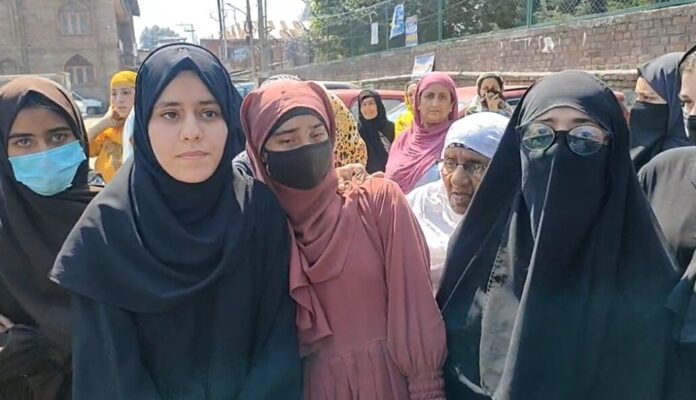Author: Iymon Majid
Affiliation: Jamia Millia Islamia, Dept. of Political Science (New Delhi)
Organization/Publisher: Politics, Religion & Ideology (Journal) by Routledge
Date/Place: August 26, 2020/UK
Number of Pages: 22
Type of Literature: Academic Paper
Link: https://doi.org/10.1080/21567689.2020.1809383
Keywords: Kashmir, Pakistan, Jama’at-e-Islami, Tehreek-e-Hurriyat Jammu and Kashmir, India, Islamism, Conflict
Brief:
The author looks at the issues faced by Islamists in Indian-occupied Kashmir through the theory of post-Islamism — a term used by Iranian political sociologist Asef Bayat (1996) to explain “a condition where, following a phase of experimentation, the appeal, energy, symbols and sources of legitimacy of Islamism get exhausted, even among its once-ardent supporters.” The author uses the theory to explain in detail the internal dynamics of Jama’at-e-Islami in the UN-recognized disputed territory and also the formation of Tehreek-e-Hurriyat (Movement for freedom – from India). India banned Jama’at-e-Islami in February 2019, and the paper tries to foresee its impact on the future of Islamism in the region. The author’s scholarship revolves around the Islamists in the region and has earned him a good space among the few commentators on the issue. A possible excitation among the Islamists across the world is their resistance to the powers that be – here, the author argues that Islamists are often repressed, outlawed and banned by various regimes around the world because “the centrality of the state in the Islamist theory which puts them in direct confrontation with the regimes.” Islamists in the disputed territory have not been able to capture state power, and due to the high degree of repression the author argues that Jama’at-e-Islami has “made a strategic shift which means that it fits into the template created for explaining post-Islamism.” It does not mean a shift in the politics of Islamists, he adds. However, the paper emphasizes that the organization (Jama’at-e-Islami) does not represent a post-Islamist politics as it “emphatically decried electoral participation (which it had once celebrated) but emphasized on social justice programs in the fields of education and community welfare.” It underwent a sea change where, the author argues, “the old planks were being reassembled to lay the edifice of a new ship.” Thus, Kashmir-resolution focused Tehreek-e-Hurriyat came into being in 2004 – it began as a forceful engagement with the state reviving the “core demands of Islamist politics that it should accede with Pakistan because of its Muslim character and that the region should be governed by Islamic principles as laid down by Islamist ideologue Syed Abul Ala Maududi. The author concludes that change in strategy or politics does not mean an Islamist organization loses its Islamic character.
By: Riyaz ul Khaliq, CIGA Non-Resident Research Associate




